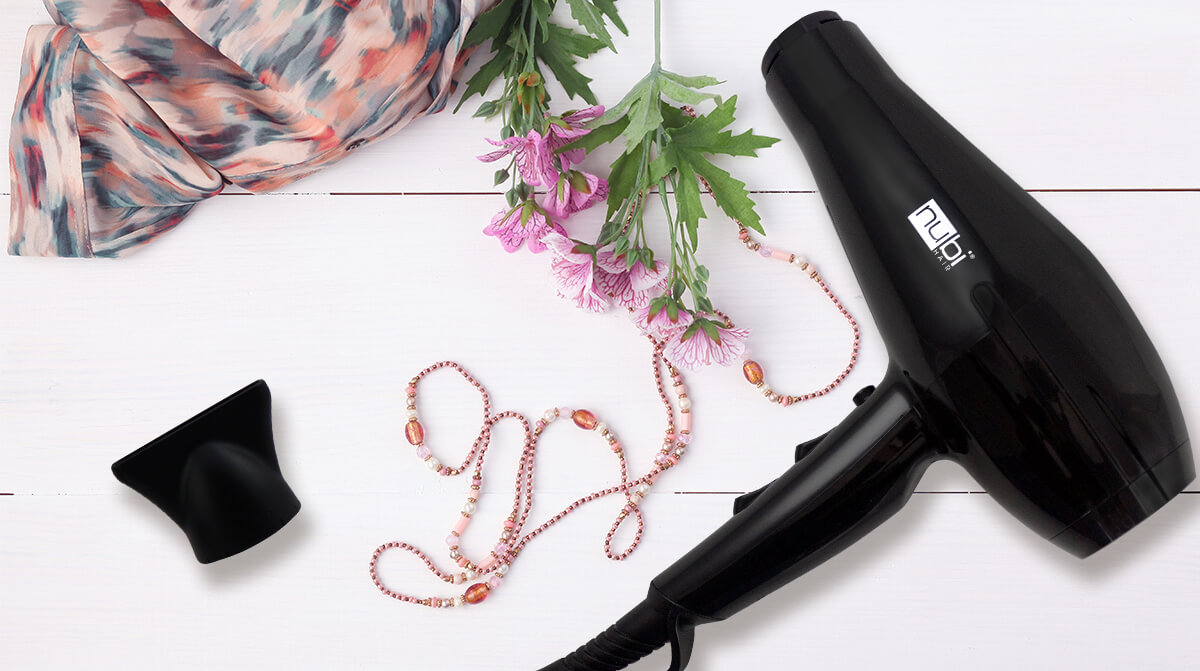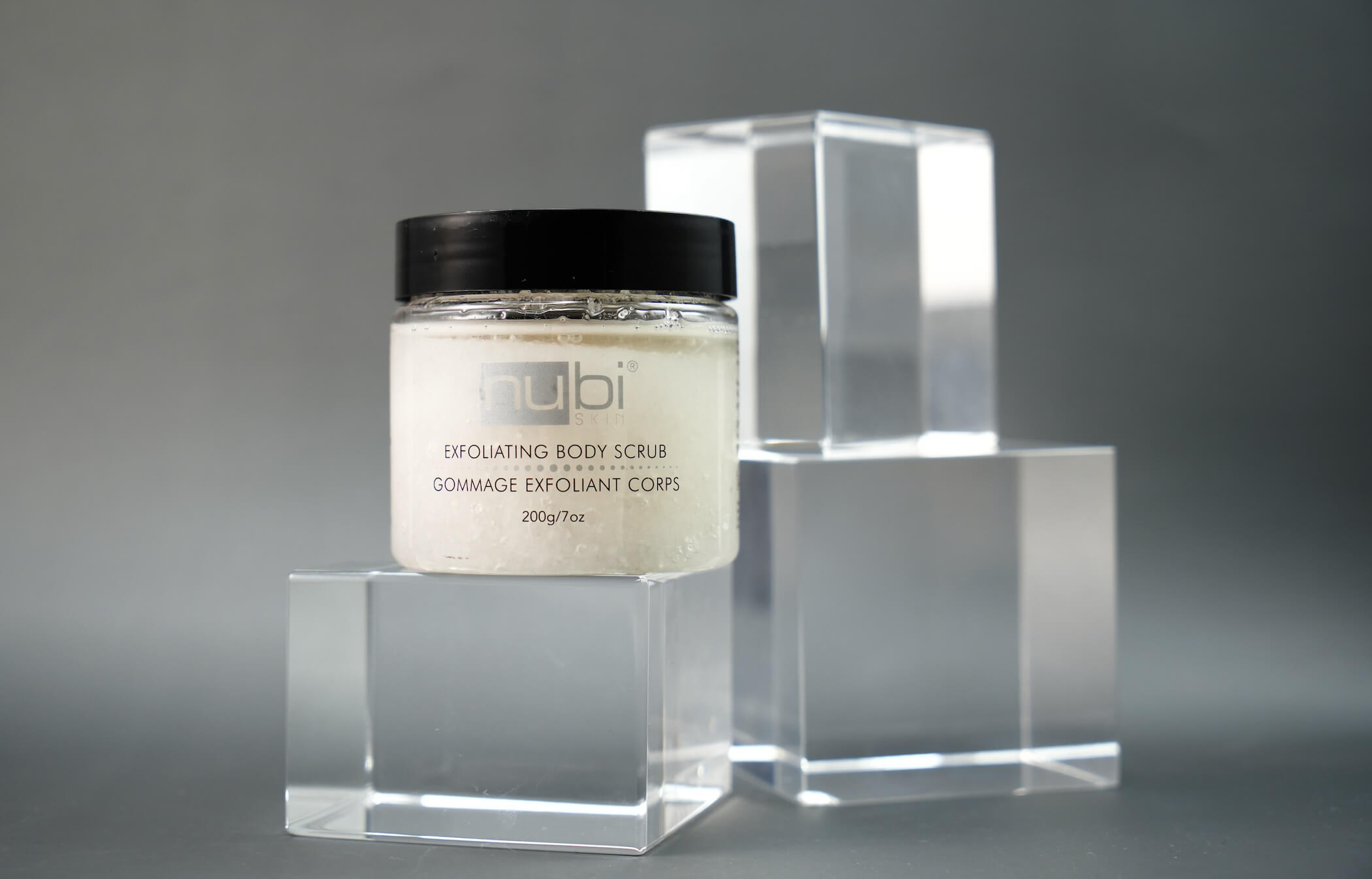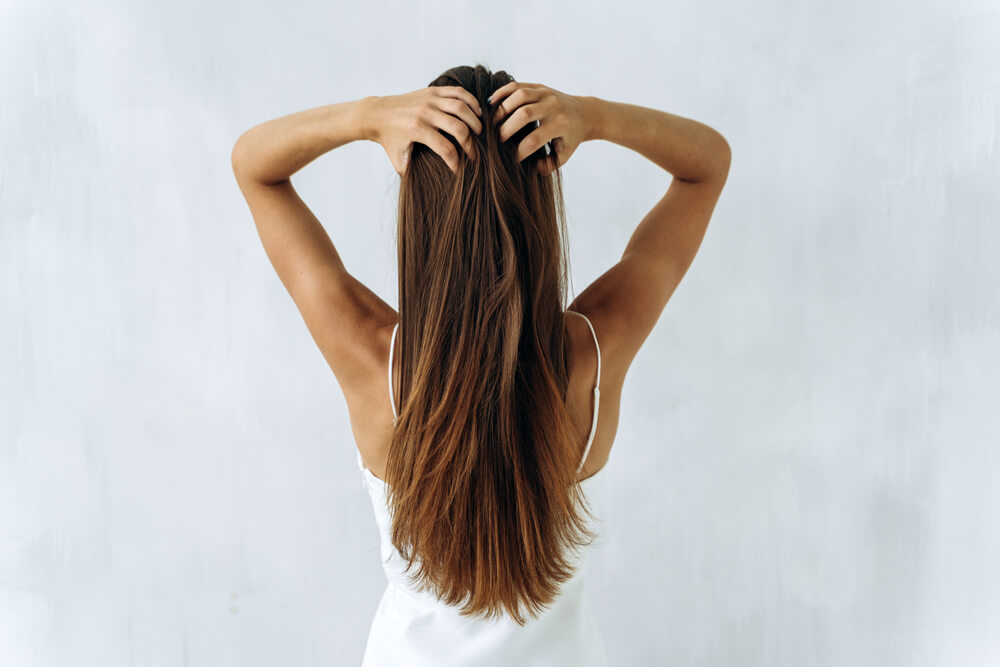Hair Care
The Secret to Healthy-Looking Hair Starts With Your Scalp
When looking for a way to give their hair a boost, people often turn to products and treatments that are applied directly to their strands. After all, surely giving your locks direct exposure to those products is what will provide the fastest results?
In some cases, yes. However, it’s also important to think about where your hairs come from, meaning your scalp. The health of your scalp directly impacts the health of your hair follicles. This, in turn, will influence the health of your hair. Therefore, if you get things right when it comes to scalp care, you probably won’t need such an expansive arsenal of hair care products in the first place!
So, what’s the secret to keeping your scalp looking and feeling its healthiest? Join Nubi as we explain…
Getting to Know Your Scalp
If you don’t know much about your scalp, it’s worth spending some time familiarizing yourself with how it works. Think of your scalp like the soil on a farm, which has a direct impact on the health of the plants (or in your scalp’s case, the hair) that grows from it. Nurturing that soil will give you a better crop, just like nurturing your scalp will give you better hair.
There are around 100,000 hair follicles on your scalp. Each one produces a single hair, along with sebum that keeps the scalp moisturized. A healthy scalp will be able to give those hair follicles all of the nutrients and oxygen that they need to produce strong and vigorous strands. Likewise, if the health of your scalp is lacking in any way, this can lead to a variety of problems with your hair, from breakages to thinning and hair loss.
How to Tell If Your Scalp is Healthy
As you can see, a healthy scalp is essential if you want your mane to look flawless. However, how do you know if your scalp is healthy or not?
Here are some of the common signs that point to an unhealthy scalp – if you’re experiencing any of the following, it’s time to put more effort into scalp care:
- Itching and discomfort
- Redness, swelling, and inflammation
- Bumps, lesions, or sores on the scalp
- Excessive greasiness, even after you’ve just washed your hair/scalp
- Thinning hair, especially if it’s concentrated in a certain area
- Dry, flaky skin
- Pain when brushing hair
- Hair that looks dull and lacks shine
- Hair that feels brittle, dry, or rough
- A burning or stinging sensation when you touch your scalp or apply certain products
- Dandruff
What causes an unhealthy scalp? This can be difficult to pinpoint as there are numerous factors that play into this, such as:
- The environment. Everything from dust and pollution to pollen and smoke can affect scalp health
- Sun exposure
- Exposure to chemicals, including chemical hair treatments
- Stress
- Nutritional deficiencies
- Hormonal fluctuations
- Genetics
- Allergies, whether seasonal or due to a reaction to a hair product you’ve used
Scalp Care 101
If you can relate to any of the scalp issues listed above, then this means that you need to reassess your scalp care habits. Let’s take a closer look at what good scalp care involves:
Cleanse Your Scalp Regularly…But Not Too Often
Keeping your scalp clean is a crucial part of keeping it healthy. This will get rid of any environmental impurities while also clearing away product buildup, both of which can interfere with how your scalp functions.
With that said, washing your scalp too often can be detrimental as well. Just like the rest of your skin, the surface of your scalp is covered by a protective layer. In the same way that cleansing your face too often can lead to problems with your complexion, over-washing your scalp strips away this protective barrier. This then leaves your scalp more vulnerable to dryness, damage, and more.
The key is to strike the perfect balance between keeping your scalp clean and not washing it too often. However, once you’ve figured this out, don’t get complacent. Your scalp’s needs will change depending on everything from the weather to hormonal fluctuations. This means that you will continuously need to reevaluate how often you should be washing your hair/scalp.
Use Gentle Hair Care Products
One mistake that many people make when choosing hair care products is opting for formulas that are designed to be super-aggressive. After all, surely the more powerful your hair care products are, the better they’ll work, right?
Unfortunately, this isn’t the case, especially when it comes to cleansing products, like shampoos. Use a product that’s overly harsh and you’ll only end up damaging your scalp’s natural protective barrier.
Instead, when picking hair care products, stick to gentle formulas. While they may not be able to make dramatic promises in the way that harsher products do, slow and steady is key when it comes to scalp care. Nurture your scalp gently over time and you’ll see much better results from your efforts.
Don’t Allow Your Hair to Remain Wet for Hours

Dealing with wet hair can sometimes be frustrating, especially if your hair is long, thick, and takes ages to dry. For many people, a simple solution when they’re in a hurry is to whip their wet locks back into a ponytail or bun, and then deal with their damp strands when they have more time later on, even if this means waiting until the end of the day.
While this may make sense in theory, it isn’t doing your scalp any favors. Instead, a wet scalp, which is what will happen if your hair is wet, is the perfect breeding ground for bacteria. Yes, some strains of bacteria are good for your scalp’s microbiome, but the ones that develop on a damp scalp aren’t the type you want around!
So, whenever your hair is wet, take the time to dry it properly. Start with a microfiber towel to absorb excess moisture and then, once your hair is about 70-80% dry, finish the drying process with a blow dryer. Look for one with a powerful motor, such as the Nubi Blow Me Away blow dryer, and you’ll be able to get the job done in no time! Our customers love us! With that said, when using a blow dryer, aim the nozzle away from your scalp. Too much heat exposure will only dry your scalp out, which you definitely don’t want!
Use a Scalp Scrub Regularly

Most people are aware of how important it is to exfoliate the skin on the face and body. However, they often don’t realize that their scalp needs the same care. After all, your scalp is made up of skin too, and is just as prone to buildup and clogged follicles. Exfoliating your scalp will help to prevent any problems associated with this.
While there are a few different types of scalp exfoliators out there, scalp scrubs tend to be the simplest to use. These can be applied while you’re in the shower, just before you shampoo your hair. The added benefit of a scalp scrub is that the application requires a massaging action. This helps to give scalp circulation a boost, which is key for keeping your scalp healthy.
One extra tip to keep in mind: use the pads of your fingers, rather than your fingernails, when massaging or exfoliating your scalp. Your nails can often cause micro-tears that pave the path for infection and other scalp issues. The pads of your fingers are much gentler and will provide the perfect amount of pressure.
Protect Against Sun Damage
As we mentioned earlier, prolonged sun exposure can lead to scalp problems. Research shows that this affects the hair follicles in a way that causes hair thinning and loss. It can also throw the scalp’s microbiome out of whack, which affects sebum production and could leave you dealing with either a very oily or very dry scalp.
To protect your scalp from the sun, start by making sure that any exposed areas of skin are covered with an SPF 30 (or higher) sunscreen. You should also wear a hat whenever you’re spending time outside. This will provide a physical barrier between your scalp and the sun’s UV rays, helping to block penetration and damage.
Be Proactive About Dealing With Scalp Problems
There are a number of different problems that can develop on the scalp. From dandruff to psoriasis to seborrheic dermatitis, all of these issues have been shown to be associated with breakages, roughness, and a lack of shine.
While taking good care of your scalp will go a long way in preventing scalp problems from arising, you may still end up noticing some issues due to factors out of your control. When this happens, don’t ignore the problem. Be proactive about dealing with them, whether this means visiting a dermatologist, buying a scalp treatment, or anything else. The sooner you deal with your scalp issues, the faster you’ll be able to put things right and bring your scalp’s health back into balance.
Avoid Hot Water
Do you often crank your shower temperature up when you’re washing your hair? If so, this habit could be the cause of the hair problems you’re dealing with. Hot water is incredibly damaging, not just to your strands themselves, but to your scalp too. Hot water strips away the natural protective barrier that keeps your scalp safe, leaving your skin vulnerable to a variety of problems.
While it may not feel quite as satisfying, aim for lukewarm when you’re washing your hair. This will not only keep your scalp healthy but will also be much better for the skin on your face and body.
Summary
While hair care may get all of the attention, scalp care is just as important. Give your scalp the love and attention that it needs and your strands will thrive as a result. If you’ve been neglectful about caring for your scalp up until now, start with the tips that we’ve shared above and both your scalp and your hair should soon start to look and feel healthier.
Click here to browse more bestselling hair products from Nubi.



